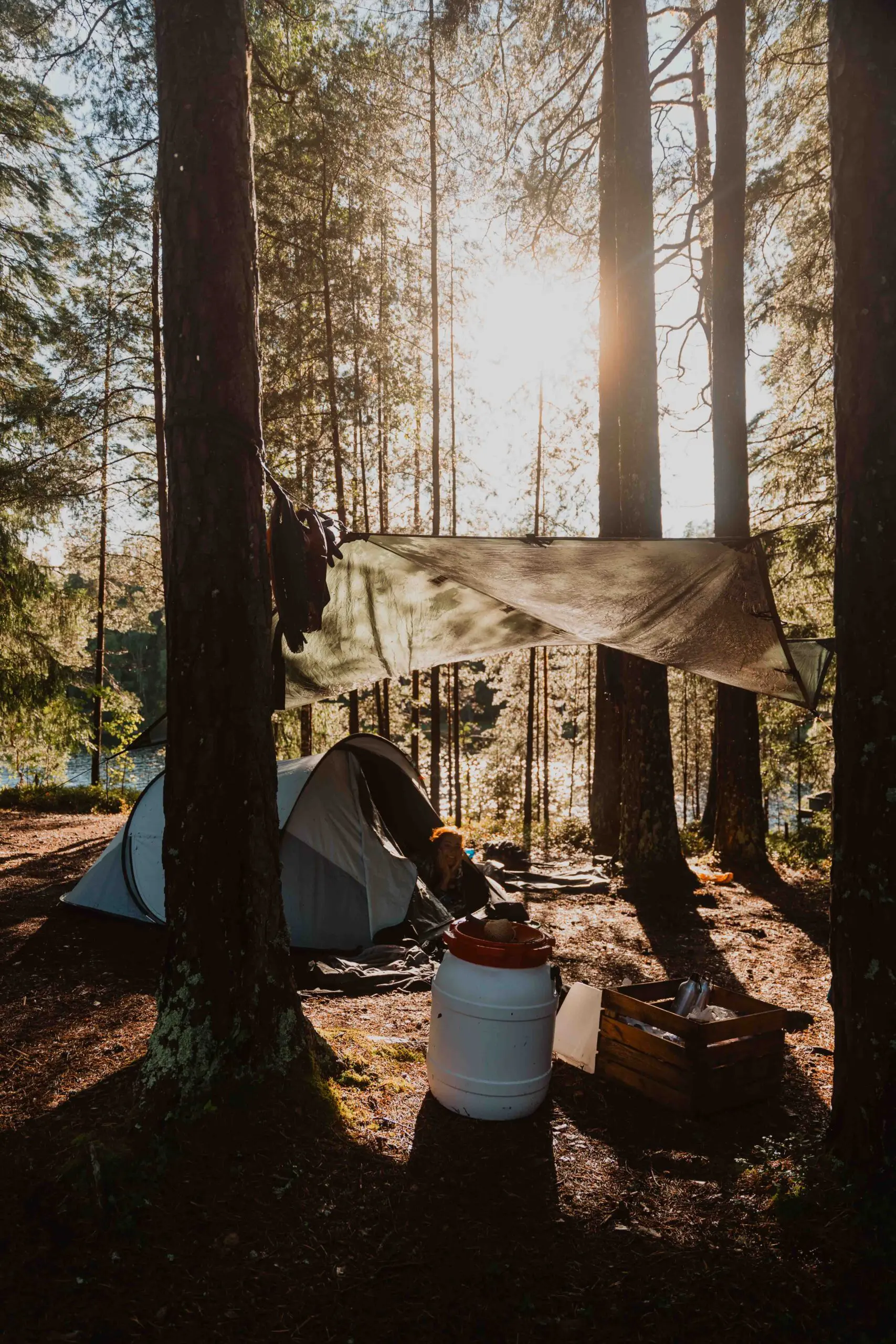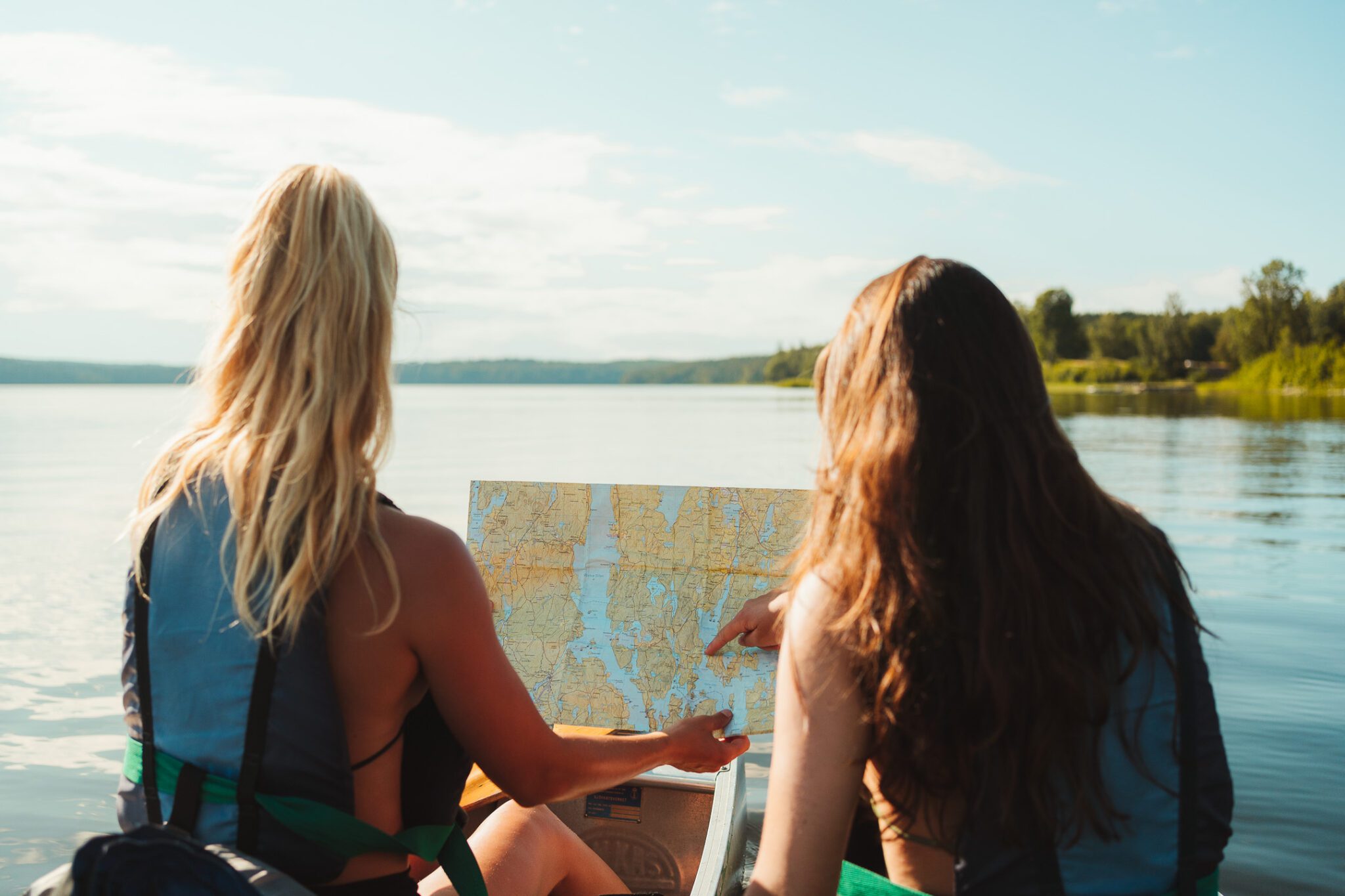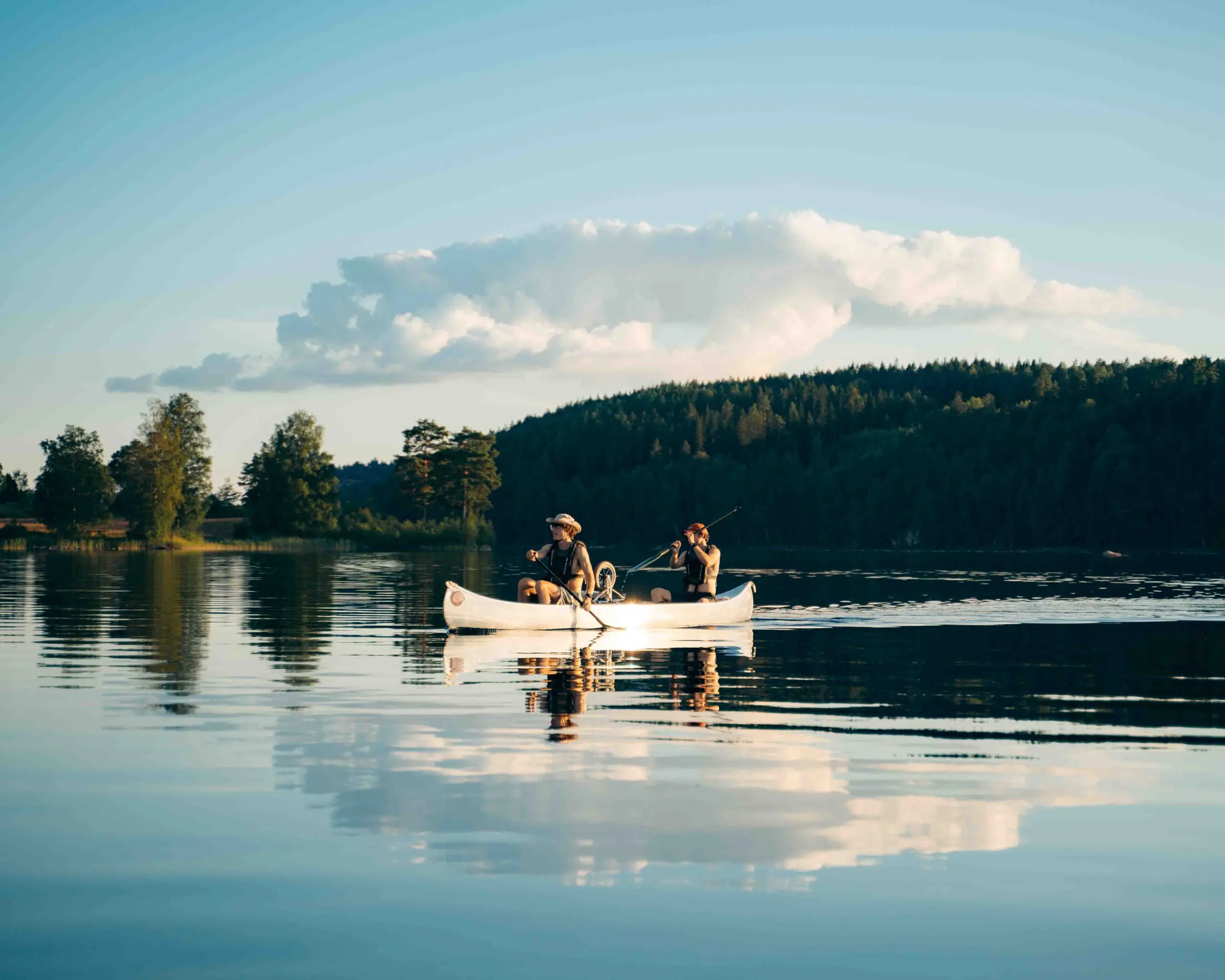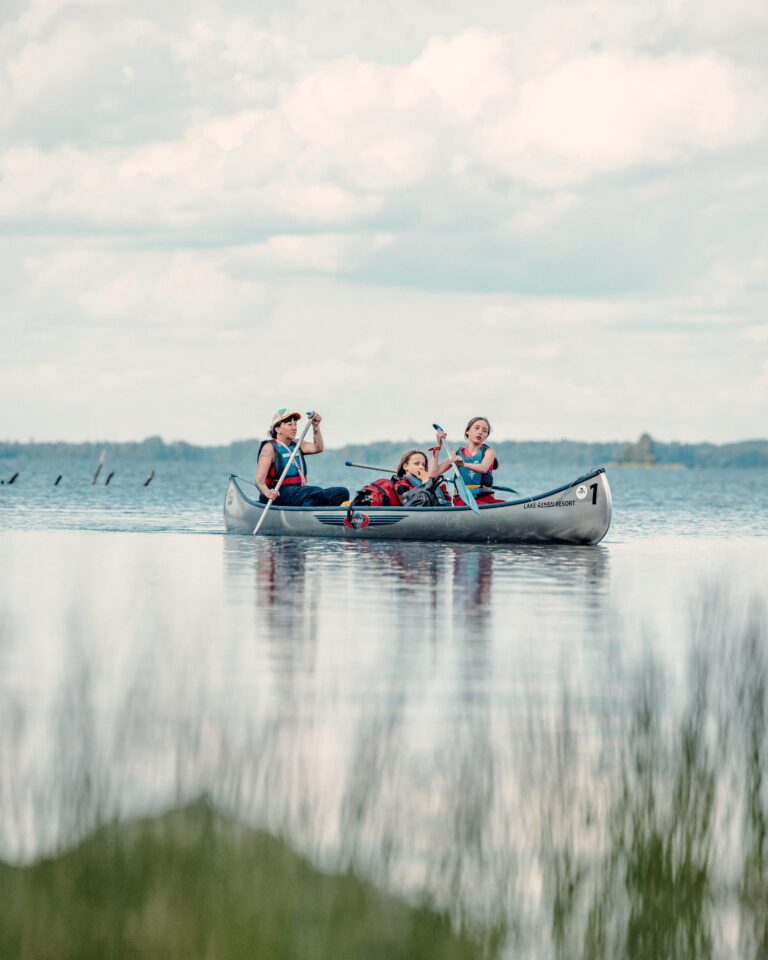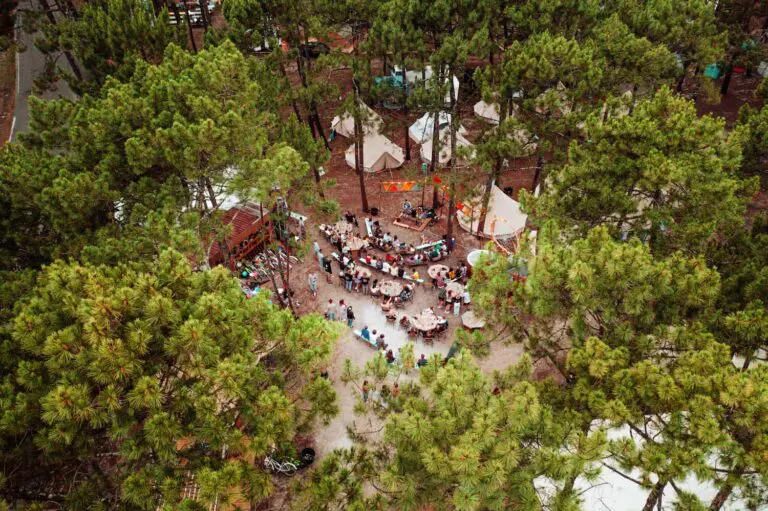Advice from the team
- Allemansrätten is an ancestral right that grants everyone free access to Swedish nature.
- Respect the basic rule: “Do not disturb, do not destroy.”
- You can camp, pick berries, and mushrooms, but make sure to stay away from residential areas.
- For a complete immersion in nature, choose activities like canoeing, especially with The Canoe Trip, which fully respects this concept.
- Before you head to Sweden, familiarize yourself with the exact rules of Allemansrätten to make the most of your stay while preserving the environment.
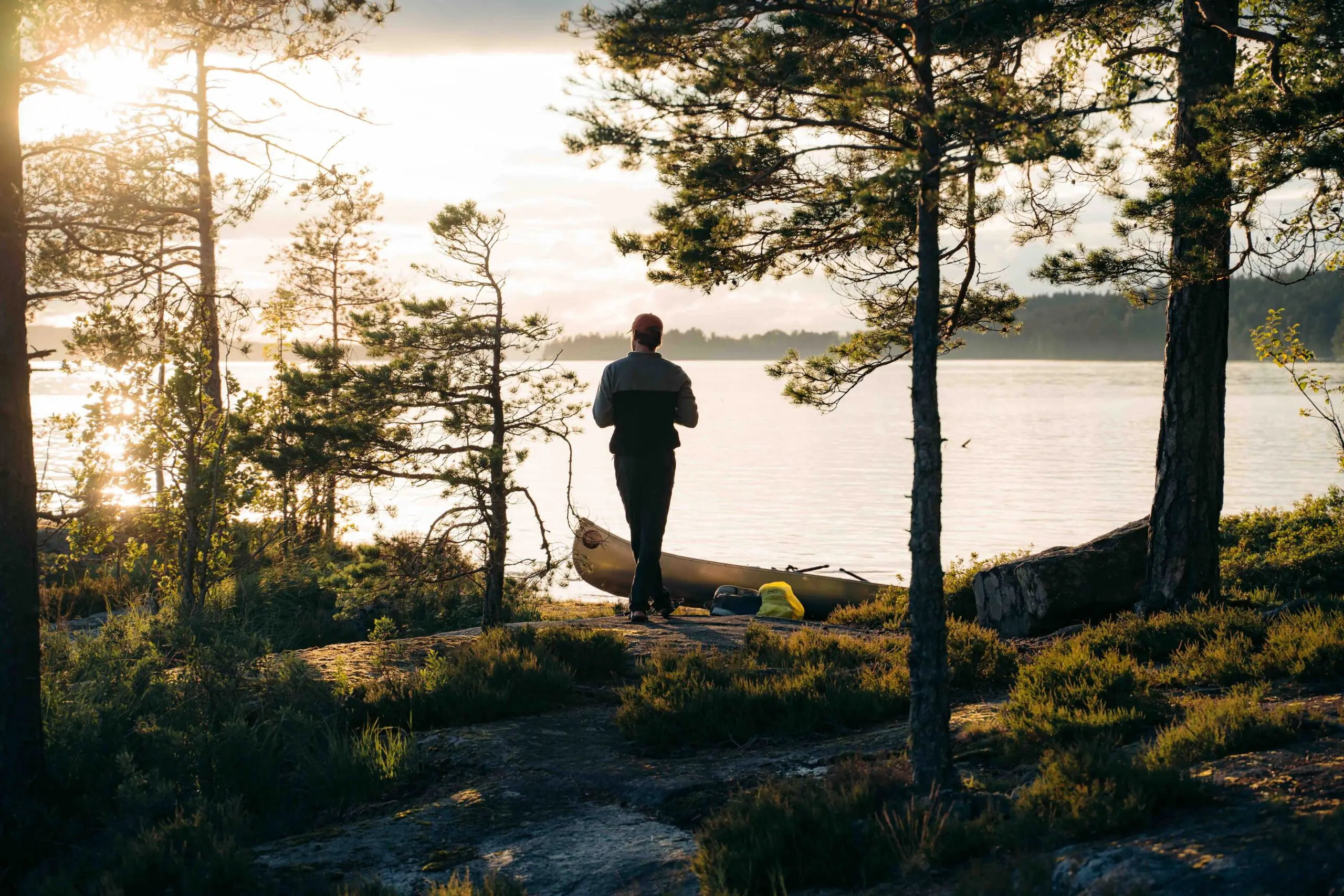
Sweden, the land where you become one with nature
Sweden is undoubtedly one of the last places in Europe where nature truly reigns supreme. Think of expansive forests covering over 60% of the country, around 100,000 sparkling lakes, and an endless coastline. But what really makes a journey through Sweden special? The unique bond that Swedes have with their nature – they don't just live in it, they live for it.
To understand Sweden, you need to grasp this deep connection with nature, which is rooted in the national identity. It’s against this backdrop that Allemansrätten was born, an ancient concept that still shapes how Swedes and visitors can enjoy this exceptional natural environment while protecting it for future generations.
What exactly is Allemansrätten?
Allemansrätten, literally "everyone's right," is a legal principle unique in the world that guarantees everyone free access to Swedish nature. The principle is simple: anyone can freely move about, temporarily stay, and enjoy natural resources on land that isn’t theirs.
Imagine this: you can pitch your tent almost anywhere in the Swedish countryside, swim in any lake, and pick berries or mushrooms! This near-complete freedom of access to nature is unimaginable in most countries, where private ownership significantly restricts these activities.
The golden rules of Allemansrätten
With great freedom comes great responsibility. Allemansrätten is based on a fundamental principle that can be summarized as: “Do not disturb, do not destroy.” Here are the key rules you should follow when visiting Sweden to take advantage of this unique right:
What you CAN do:
- Hike, bike, or ski almost anywhere in nature
- Camp for one or two nights in the same spot (away from settlements)
- Swim in lakes and the sea, and temporarily dock a boat
- Pick wildflowers, berries, and mushrooms
- Make a small fire if conditions allow (be aware of restrictions during dry periods).
What you MUST NOT do:
- Enter private gardens, cultivated land, or plantations
- Camp near homes (keep at least 150 meters away)
- Cut down trees or shrubs, or remove bark or branches
- Collect bird eggs or disturb wildlife
- Leave trash in nature
It is thanks to this mutual respect that Swedish nature remains so well preserved despite its accessibility. During your trip to Sweden, you’ll notice that this balance between free access and environmental responsibility is an integral part of local culture.
Putting Allemansrätten into practice: immersion in Swedish nature
To fully experience Allemansrätten, nothing beats immersing yourself in the Swedish wilderness. The possibilities are endless, but certain activities are particularly emblematic of this privileged relationship with nature.
Canoeing is undoubtedly one of the best ways to explore Swedish nature while respecting the environment. Gliding silently over the crystal-clear waters of a lake, pausing on a deserted island for a picnic, and then setting up your tent for the night by the water's edge… this is the essence of Allemansrätten!
If you’re looking for an authentic experience with guidance, The Canoe Trip offers adventures that perfectly align with this philosophy. Their excursions adhere to the principles of Allemansrätten to the letter and guide you through the most beautiful spots in Swedish nature.
Cultural and ecological significance
Allemansrätten is much more than just a legal framework – it is a pillar of Swedish identity. This right reflects deeply rooted values: equal access to nature, mutual trust, and collective responsibility for the environment.
For Swedes, spending time in nature is not a luxury but a necessity. The concept of “friluftsliv” (living outdoors) is closely linked to Allemansrätten and contributes to the well-being of the population. Study after study confirms the benefits of this regular connection with nature for physical and mental health.
From an environmental perspective, this unique system creates a positive feedback loop: by providing access to nature, Allemansrätten encourages people to appreciate it and thus want to protect it. When you travel to Sweden, you quickly realize why environmental awareness is so high – when nature is part of your daily life, you naturally want to preserve it.
Allemansrätten for international visitors
If you’re planning a trip to Sweden, Allemansrätten offers an excellent opportunity to experience authentic Scandinavian nature. However, as a foreign visitor, it’s particularly important to understand and respect this right so that it can continue to exist.
Make sure you know the rules before you leave, especially regarding campfires, which are strictly regulated in the summer. The Swedish Tourist Board has some excellent resources on this topic.
An ideal way to discover Swedish nature while being guided according to Allemansrätten is to join an organized excursion, such as those offered by The Canoe Trip. Their experienced guides will inform you of the best practices while showing you breathtaking landscapes off the beaten path.
